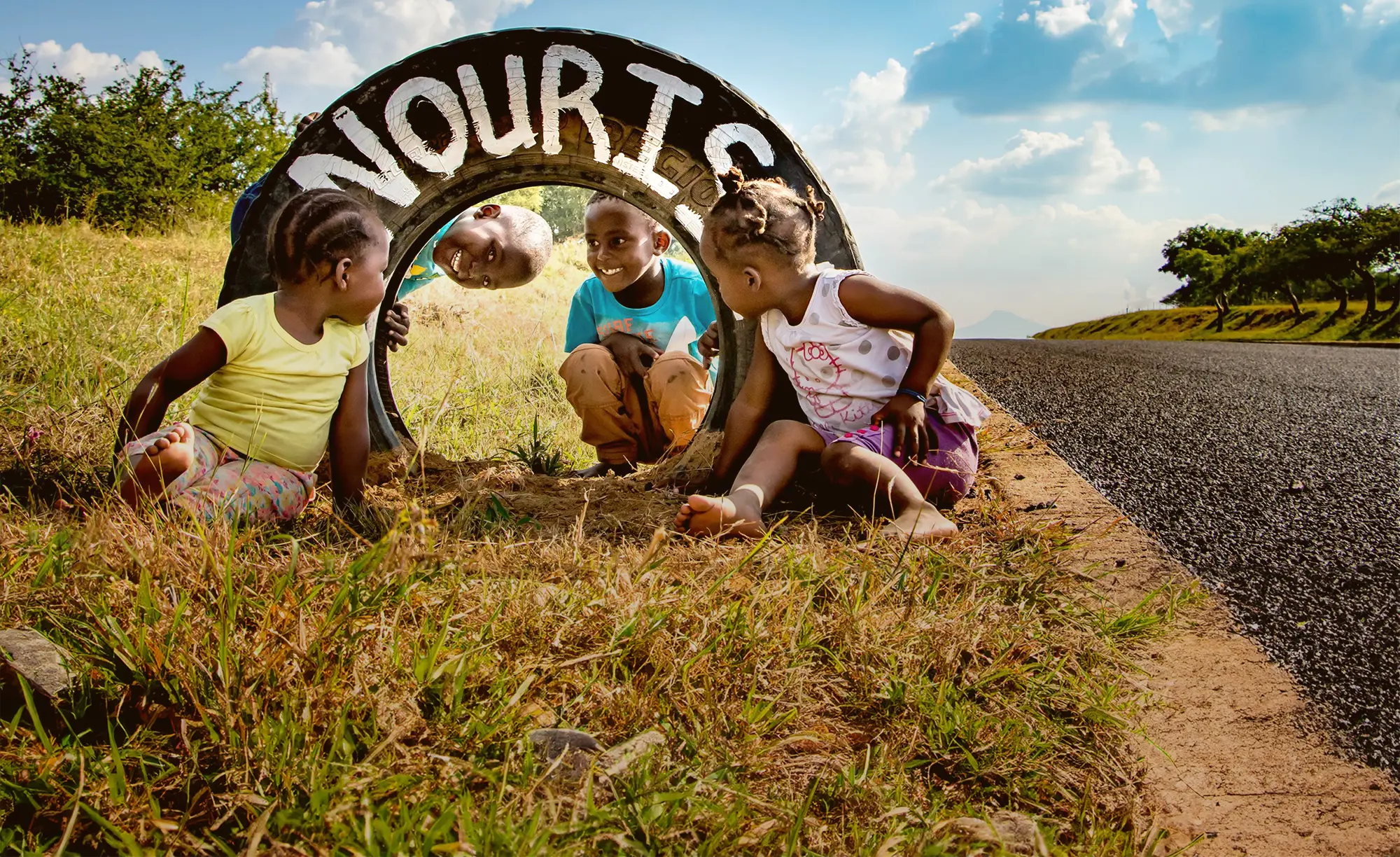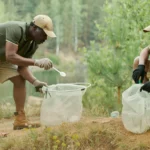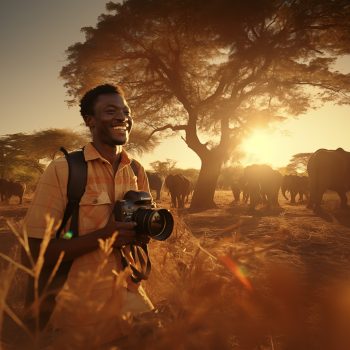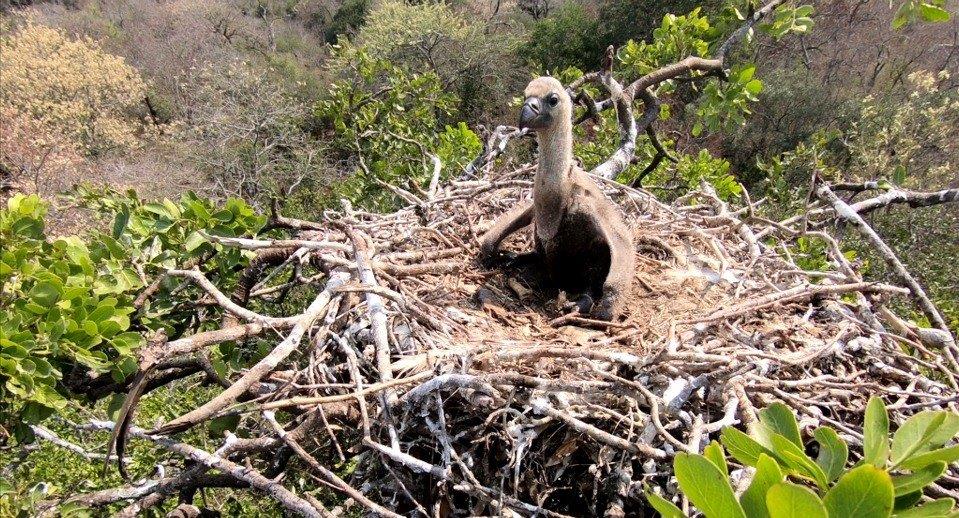Deep in the Greater Kruger landscapes, a vibrant, youth led eco-village is uniting community and conservation efforts
By Buntu Duku
A few years ago, Katekani Martin Mathabele, a young man from the village of Sigagule, found himself in a tense standoff with a pack of African wild dogs. On a crisp winter afternoon, Mathabele and his soccer team took a shortcut near a broken fence line, only to encounter these impressive hunters.
“Stay calm, stay together, move back slowly, and never run. You can’t outrun wild dogs,” Mathabele recalled. His quick thinking and calm demeanour helped his teammates navigate the encounter safely. Although their soccer match ended in defeat, Mathabele’s actions that day were a testament to his growing connection with the wildlife around him.
Anxious novice
Mathabele’s journey from an anxious novice to a conservation and community upliftment ambassador began in 2017 when he volunteered for work at Nourish Eco Village that addresses community needs from ‘cradle to career’.
The initiative started on a modest hectare of tribal land near the near Timbavati Safari Camp en route to Orpen Gate of the Kruger National Park. It has since expanded to over three hectares and features a range of facilities including an indigenous food garden, kitchen, crèche, and a Green Kidz aftercare programme that provides conservation-based environmental education, art and sporting activities.
Expansion
The recent addition of a second eco-village in Makrapeni – a small rural village in Bushbuckridge – now enables Nourish to provide meals to over 350 children daily in the Greater Kruger area, also promoting wildlife awareness and conservation.
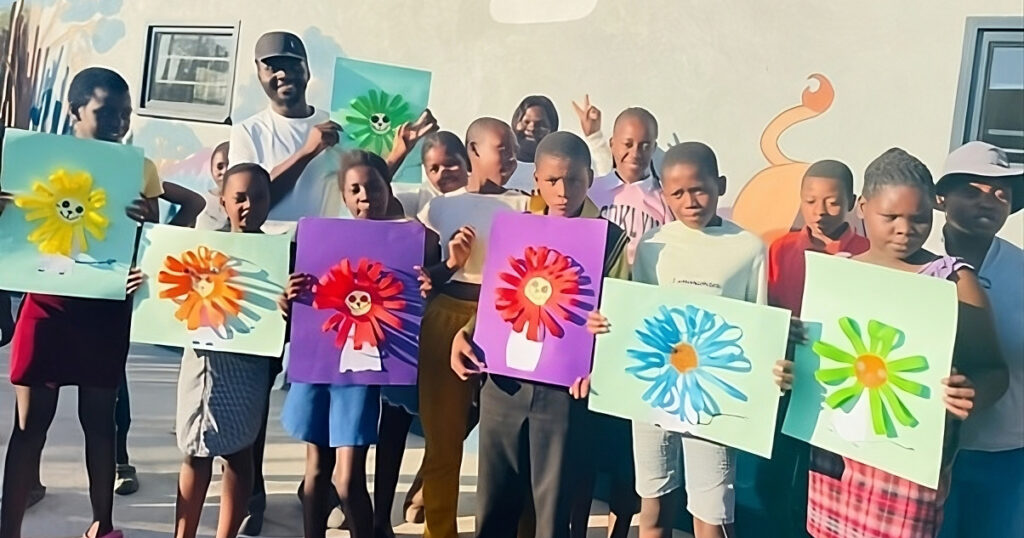
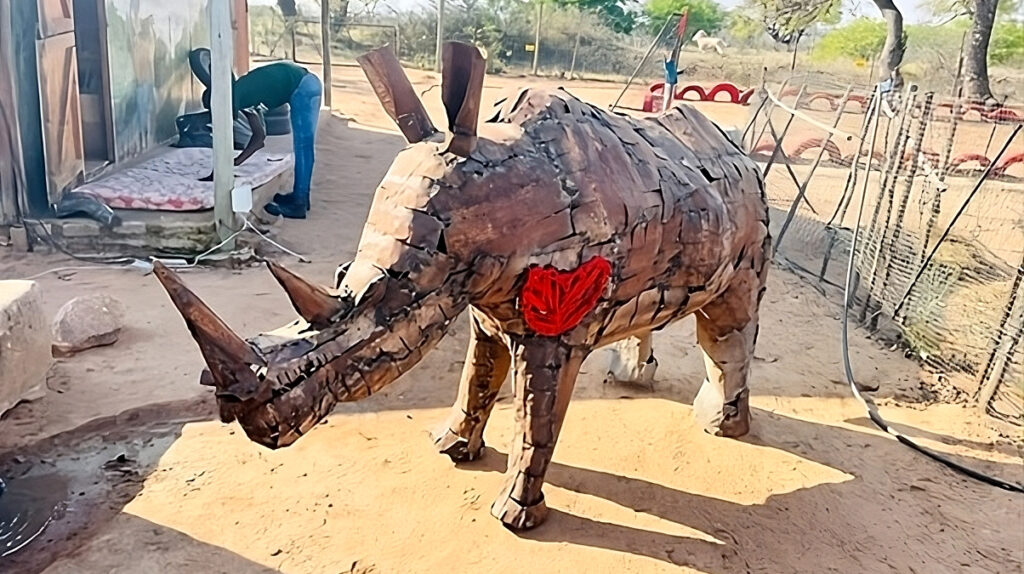
Humble beginnings
Initially tasked with escorting children from the Sigagule village to Nourish, Mathabele soon found himself drawn into its educational programmes.
When a Green Kidz facilitator left, Mathabele stepped up to fill the gap. “I never looked back,” he says. By expanding his skills and knowledge in wildlife conservation and education, Mathabele soon became an integral part of the Nourish team.
“It changed me profoundly,” says Mathabele.
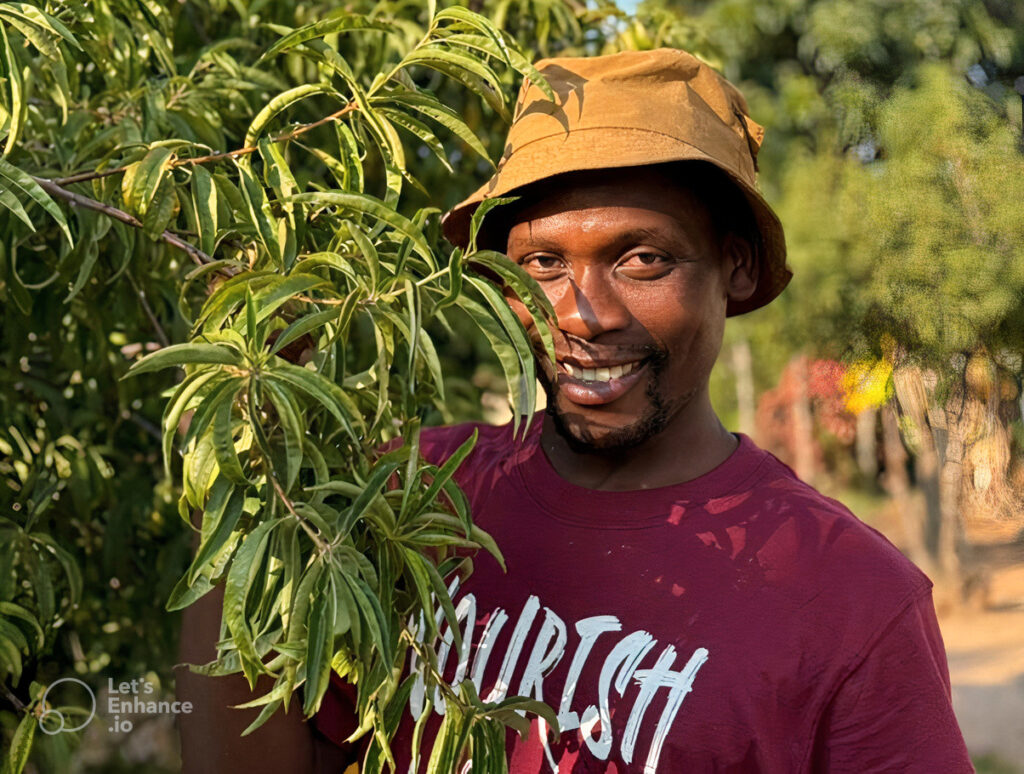
That Nourish’s initiatives are bearing fruit can be seen in the achievements of individuals like Mathabele who was recently selected to represent Mpumalanga at the World Scouting Jamboree in Berlin.
“In the future, I would love for us to expand on Scouting,” says Mathabele. “It could change many lives, including behaviour and growth, benefiting both the kids and the community.”
Genesis
Nourish was founded in 2011 by Sarah Bergs, who grew up in the nearby Timbavati Private Nature Reserve. With her father serving as a ranger and her mother as a receptionist, Bergs gained a unique perspective on wildlife conservation from an early age. “My parents’ work exposed me to the challenges and wonders of wildlife conservation” Bergs recalls. “It sparked a lifelong commitment to bridging the gap between local communities and conservation efforts.”
Her formative experiences at Timbavati were pivotal in shaping her vision for Nourish. Bergs recognised the disconnect between local communities and the wildlife living nearby. “Growing up, I saw how communities just beyond the reserve’s boundaries had little interaction with the wildlife they lived so close to,” Bergs explains. “This realisation drove me to create a model that integrates conservation efforts with community development, addressing both poverty and environmental stewardship.”
The eco-village was established with the support of traditional authorities, including the late Chief William Nyathi, who secured the initial hectare of land for the village. It began with modest facilities, including a food garden, a small kitchen, and a crèche. Over the years, it has expanded to include a football field, a curio shop, backpacker accommodations, and more.
“Our facilities, like the indigenous food garden and Green Kidz classroom, are designed to be multifunctional, supporting both conservation education and community upliftment,” says Bergs. “We aimed to create a space that not only met immediate needs but also fostered long-term growth and education.”
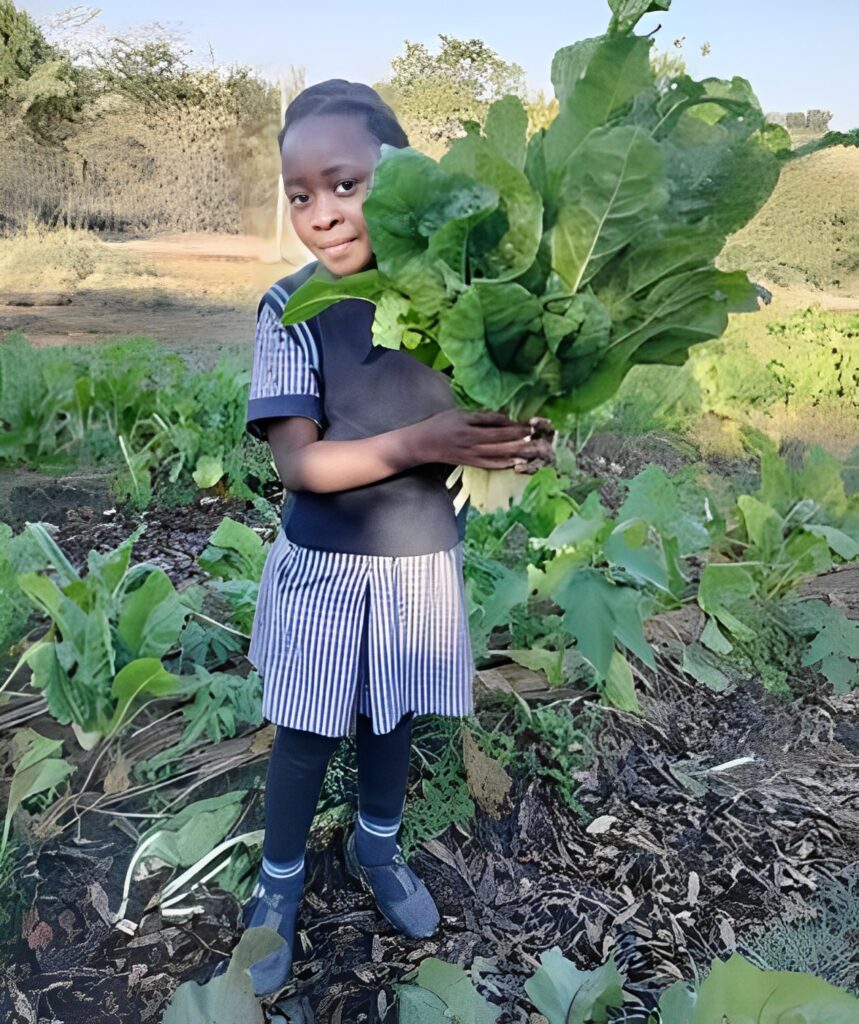
At the recent official inauguration of the new Nourish enterprise hub in Makrapeni, local village headman, induna Nabothi Mathonsi, paid tribute to Bergs’ father, former ranger Steve Bergs, saying, “Without him, there would be no Sarah, no Nourish.”
“It was the most special day of my life,” recalls Bergs. “My work, my calling and my biggest fan – my dad – all came together. I would not be where I am today without my loving and supportive family, and this amazing broader community.”
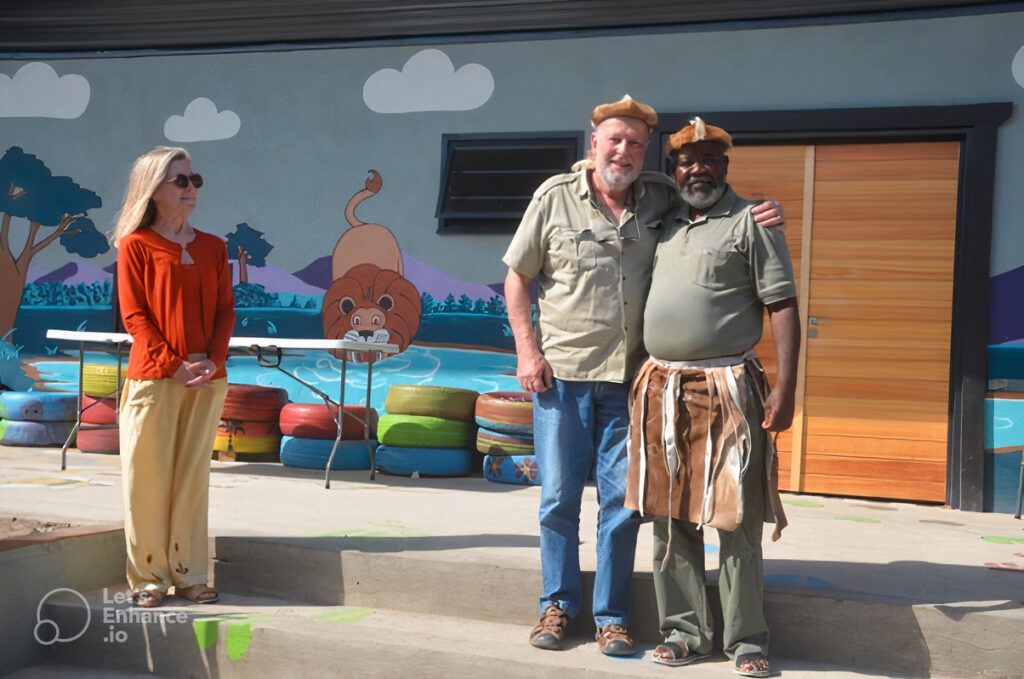
Stakeholders’ recognition
Nourish and Sarah Bergs were recently honoured at a gala Khetha Game Changers event where more than 65 leading conservation stakeholders gathered in Hoedspruit to pay tribute to unsung heroes in the Greater Kruger landscape.
Khetha, which means “to choose,” is a multifaceted WWF South Africa programme, funded by USAID, that drives meaningful change in addressing wildlife crime and conservation challenges in the Greater Kruger.
All nominated Khetha Game Changers shall feature in a Khetha eBook titled “Trailblazers of the Wild”, said Roving Reporters director Fred Kockott, who leads the Khetha 2024 Story Project in partnership with science communication agency Jive Media Africa. “The aim is to encourage media outlets and journalists to write stories about the incredible work these game changers are doing,”
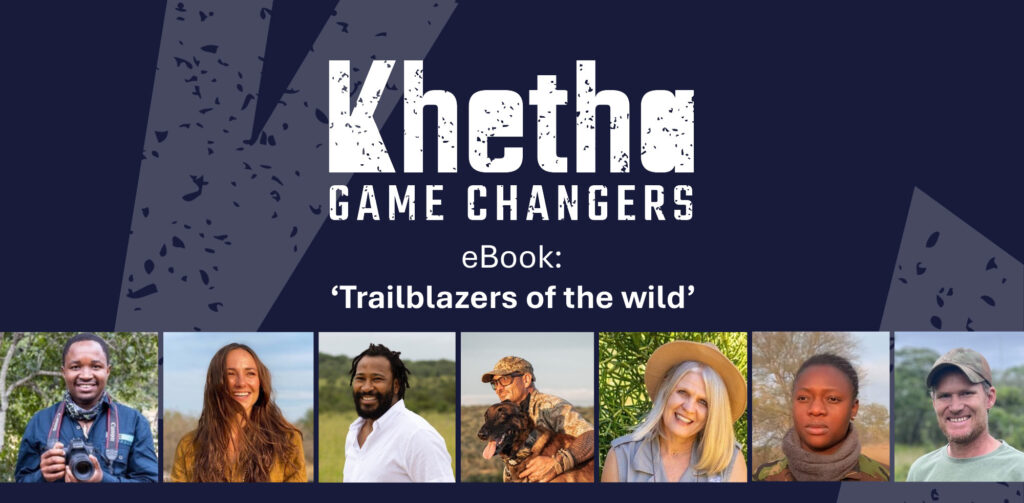
Topping the charts of more than 27 nominated game changers are acclaimed conservationist Matt Lindenberg of Global Conservation Corps, known for the award-winning documentary Rhino Man; Rifumo Mathebula from Wild Shots Outreach; Marie-Tinka Uys, who has devoted two decades to nurturing future conservation leaders in the K2C Biosphere; Nkateko Letti Mzimba, a Transfrontier Africa anti-poaching ranger and educator, and Professor Mtungwa, who has implemented a large-scale sports programme under the umbrella of the Greater Kruger Environmental Protection Forum (GKEPF).
Additionally, a Southern African Wildlife College (SAWC) team was recognised for its comprehensive approach to wildlife conservation and community development. Jeremy Hancock spearheads the Protected Area Integrity Department; Johan van Straaten leads the K9 Unit with specialised off-leash tracking hounds; Bruce McDonald provides crucial aerial support and pilot training; and Sboniso Phakathi manages the RISE programme, focusing on community engagement and environmental education.
Collaboration
Responding to her nomination, Bergs said the honour belonged to her entire team.
“They are the ones making it all happen on the ground, delivering impact daily,” says Bergs. “My role is to keep the wheel turning – to find innovative and diverse ways to secure funding so, together we can keep making the magic happen.”
She also stressed that the organisation’s success is rooted in collaborations with traditional authorities, conservation organisations, and tourism operators. “These partnerships strengthen our educational programs and community engagement.”
Nourish’s initiatives are also supported by over 50 global volunteers annually, yet funding remains a significant challenge, says tourism coordinator, Loren Barougier. The organisation relies on a combination of local and international fundraising efforts, including the “Nourish-USA” initiative.
Replication
Looking ahead, the organisation has hinted at plans to replicate their approach in Mozambique, or other SADC countries, where similar challenges exist. “Poverty and limited opportunities cripple our communities,” says Rirhandzu Mnisi, a long-serving member of the eco-village. “If we had endless opportunities, people wouldn’t resort to illegal activities.”
“Our vision is to co-create a series of eco villages across sub- Saharan Africa, where wildlife and communities coexist,” adds Bergs. “This is the journey for our future.”
At the close of recent Khetha gala event, WWF-SA programme manager Lindie Botha
paid tribute to all organisations and individuals, like Bergs and Mathabele, who are shaping a more connected future for both people and wildlife in the Greater Kruger.
“I want to thank all of you gathered here tonight for being game changers in your own sphere of life . . . May our stories multiply and create a mighty conservation conversation,” said Botha.
Mathabele agrees. It’s all about the spirit of ubuntu, says Mathabele, referring to the age-old African proverb that individual well-being is intimately connected to the well-being of others. The activities of Nourish Eco Village and other leading game changers in the Greater Kruger embody this spirit in action, much in the same way that African wild dogs thrive through teamwork and unity. – Additional reporting, Fred Kockott, Roving Reporters
- Buntu Duku is an emerging writer at Kruger 2 Canyons News enrolled on the Khetha New Narratives training project. This story was first published by Kruger 2 Canyons News under guidance of Roving Reporters.

